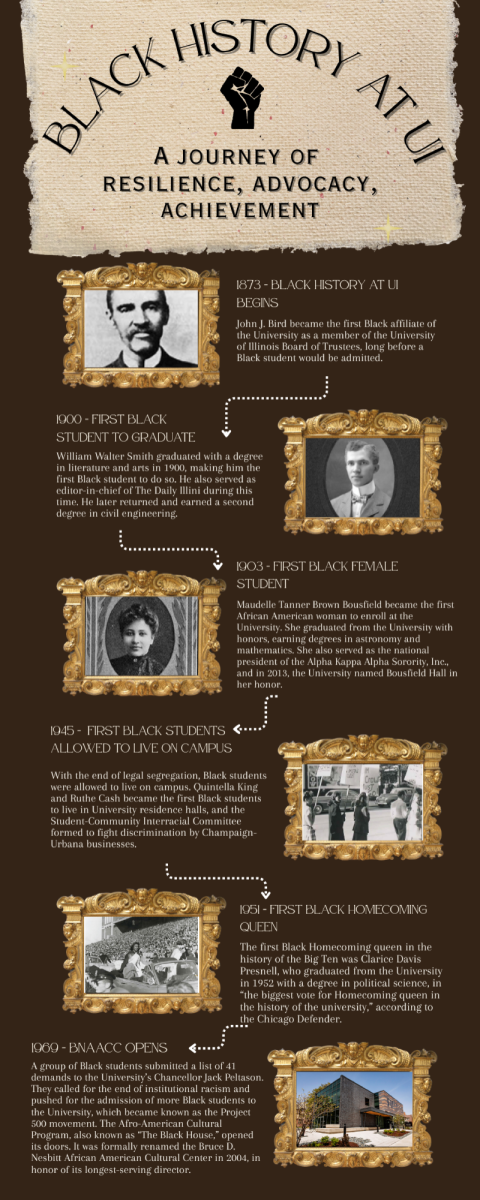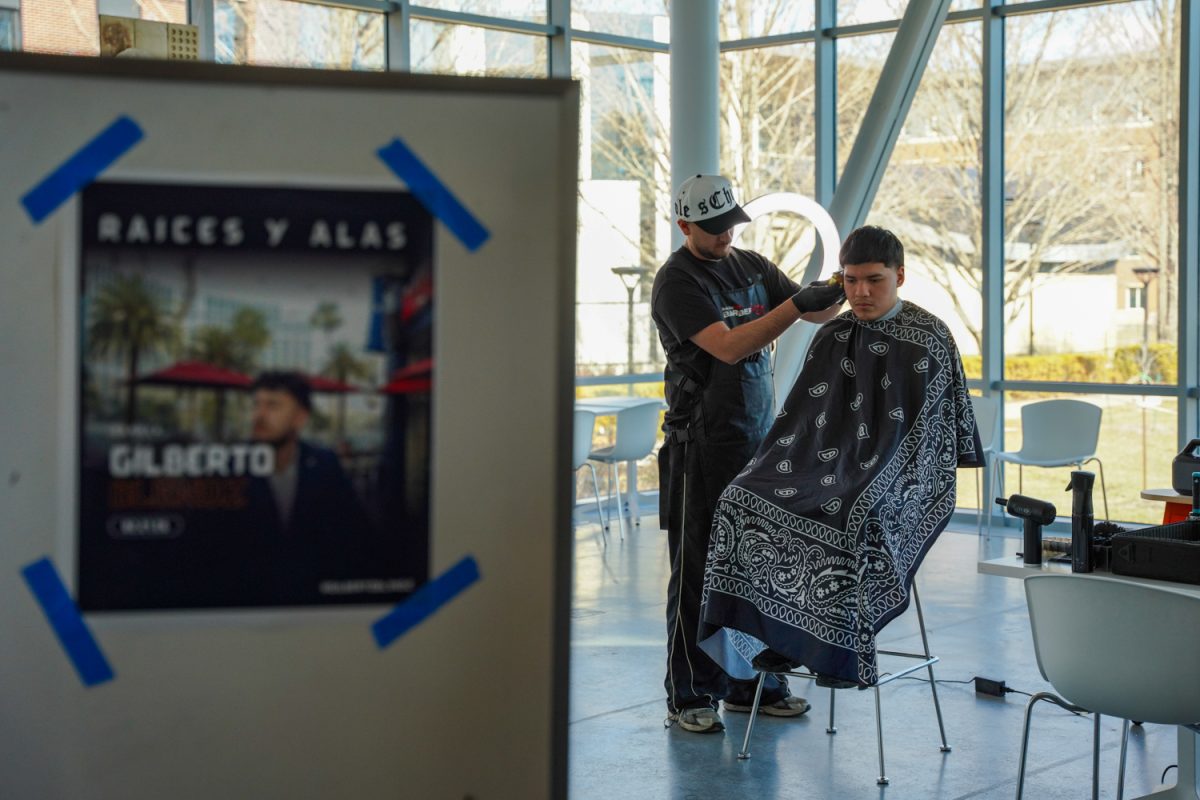The MLK celebration lecturer event bases its yearly theme on Dr. Martin Luther King’s beliefs and what resonates with today’s society and culture. Amid the political divide in the United States, one theme that resonated with the committee was what King had discussed many times in his literature — the “beloved community.”
In this year’s event, the committee chose Rebecca Ginsburg, co-founder and director of the Education Justice Project, to be the main event’s speaker. Ginsburg’s work with EJP embodies King’s beliefs regarding the beloved community.
Ginsburg talked about the benefits of creating beloved communities in prisons. However, she also discussed that instead of viewing these programs as the end goal, they should be viewed as tools to inspire and dismantle the prison system altogether.
“Building the beloved community is not simply a matter of creating pockets of goodness that allow people to be within oppressive systems,” Ginsburg said. “Rather, the task demands that we confront and transform the systems that perpetuate harm so that justice, love and equity are not confined to small exceptional spaces.”
The EJP provides higher-level education to prisons, including the Danville Correctional Center, a medium-security men’s prison. For the past 15 years, EJP has offered incarcerated individuals University courses and extracurricular activities.
Get The Daily Illini in your inbox!
“The work of Dr. Ginsburg is one of inspiration, liberation, hope and compassion,” said Medra Roberts-Southerland, associate director for Diversity Initiatives.
Jen Whiting, graduate student studying curriculum and instruction, explained that attending this event was a tremendous opportunity to learn something she hadn’t considered before, such as prison abolition.
Whiting had attended one of Ginsburg’s classes about the history of prison, where Ginsburg introduced the idea of prison abolition.
A student had asked Ginsburg if she wanted to expand EJP, to which Ginsburg responded, “No, no, I’m an abolitionist. I want to shut it down.”
“It certainly pivoted my thinking,” Whiting said. “It introduced to me an idea I hadn’t yet considered. I think that she is so fundamental in really challenging students to think about things in ways that we never have before.”
Chad Rand, outreach and distribution coordinator for EJP’s Reentry Resource Program, appreciated Ginsburg’s concept of leading with love, especially with individuals who perpetuate systems of oppression like the prison system.
“Prison abolition is a difficult concept for a lot of people, and I was glad that she said we need to start with love, that love is really the most important thing,” Rand said. “I think you really do need to start by recognizing that the people who operate and continue these systems are not monsters, they’re not inhuman, they’re people, and they deserve love and respect, even if we fundamentally disagree.”
Amid the isolating nature of prisons, Ginsburg explained how educational programs like EJP can create a beloved community that reflects King’s values.
“Within the dehumanizing environment of prisons, these spaces offer something profoundly counter-cultural, a refuge from the violence, isolation and despair that so many incarcerated individuals endure,” Ginsburg said.
However, despite the success and hope brought by spaces like the EJP, Ginsburg warns that these programs can lull individuals into complacency instead of striving for change and reforming these prison systems.
“We might be tempted to see these spaces as endpoints, as a realization of King’s vision, rather than as race stations on the road to true justice,” Ginsburg said. “They should not blind us to the larger, harsher reality that prisons remain violent, oppressive institutions designed to punish rather than to heal.”
Although programs like EJP can give incarcerated individuals a break from the reality of their lives in prison, once their class or extracurricular activity ends, Ginsburg said they return to their lives as inmates.
“They face indignities on a regular basis, like inadequate health care, inadequate mental health care, dental care, insufficient clothing, insufficient food,” Ginsburg said. “And they endure the emotional strain of separation from loved ones.”
While one of the purposes of prisons is to rehabilitate inmates, Ginsburg explained research shows incarceration is criminogenic, meaning these prisons increase the likelihood of harm rather than reduce it.
According to Ginsburg, this is due to prisons’ negative psychological and financial impacts on incarcerated individuals and their families.
“Mental health (issues) are rampant with incarcerated individuals experiencing significantly higher rates of depression (and) anxiety than PTSD,” Ginsburg said. “This suffering extends beyond prison walls. Nearly half of those incarcerated are parents, and their imprisonment puts children in emotional and financial turmoil, perpetuating cycles of poverty and instability.”
A 2017 report released by the U.S. Department of Justice Bureau of Justice Statistics indicated that 44% of jail inmates and 37% of incarcerated individuals were told by a medical professional they had a mental health disorder.
According to a 2016 Survey of Prison Inmates, 47% of state prisoners and 58% of federal prisoners were parents of at least one minor child.
Because of the negative impacts of prisons, Ginsburg advocates alternatives to prisons. She said she has seen many programs and initiatives nationwide that perform different approaches to incarcerating individuals through restorative justice processes.
Restorative justice is an approach to justice where offenders and victims are allowed to communicate and find a solution to repair the damage done with the assistance of trained facilitators.
One program Ginsburg highlights is Common Justice, an alternative-to-incarceration and victim service program in New York City that facilitates restorative justice processes instead of sending people to prison.
“(Common Justice) challenges the notion that prison is the only way to respond to violence and shows that accountability and healing can exist outside punitive systems,” Ginsburg said.
According to Ginsburg, these alternatives to incarceration reflect King’s ideals.
“To King, reconciliation is not about ignoring or glossing over wrongs but addressing them head-on in a way that promotes equity and accountability,” Ginsburg said. “Reconciliation is not easy. It requires us to come together to take shared ownership and a just future, and it’s a prerequisite to building our beloved community.”







